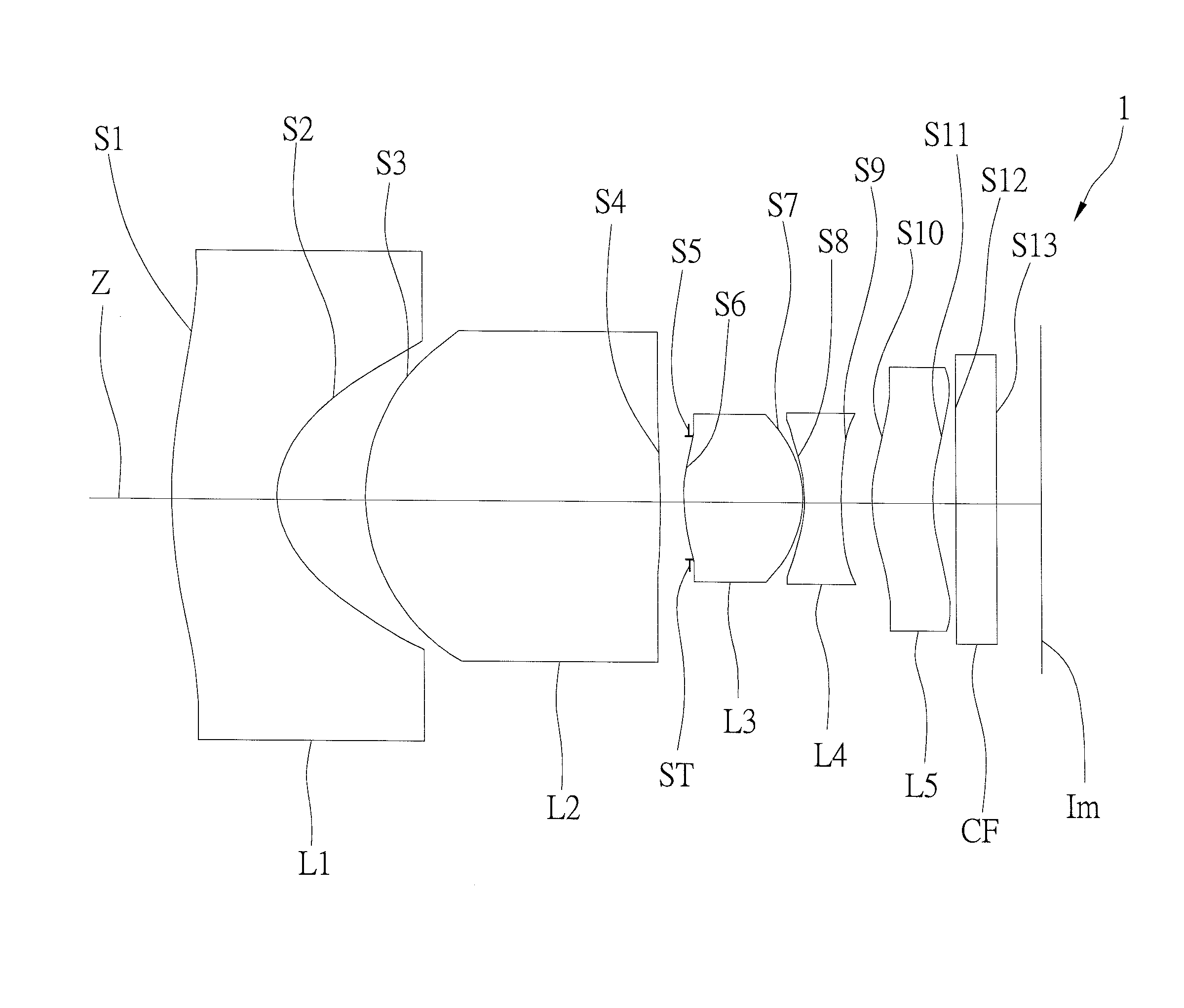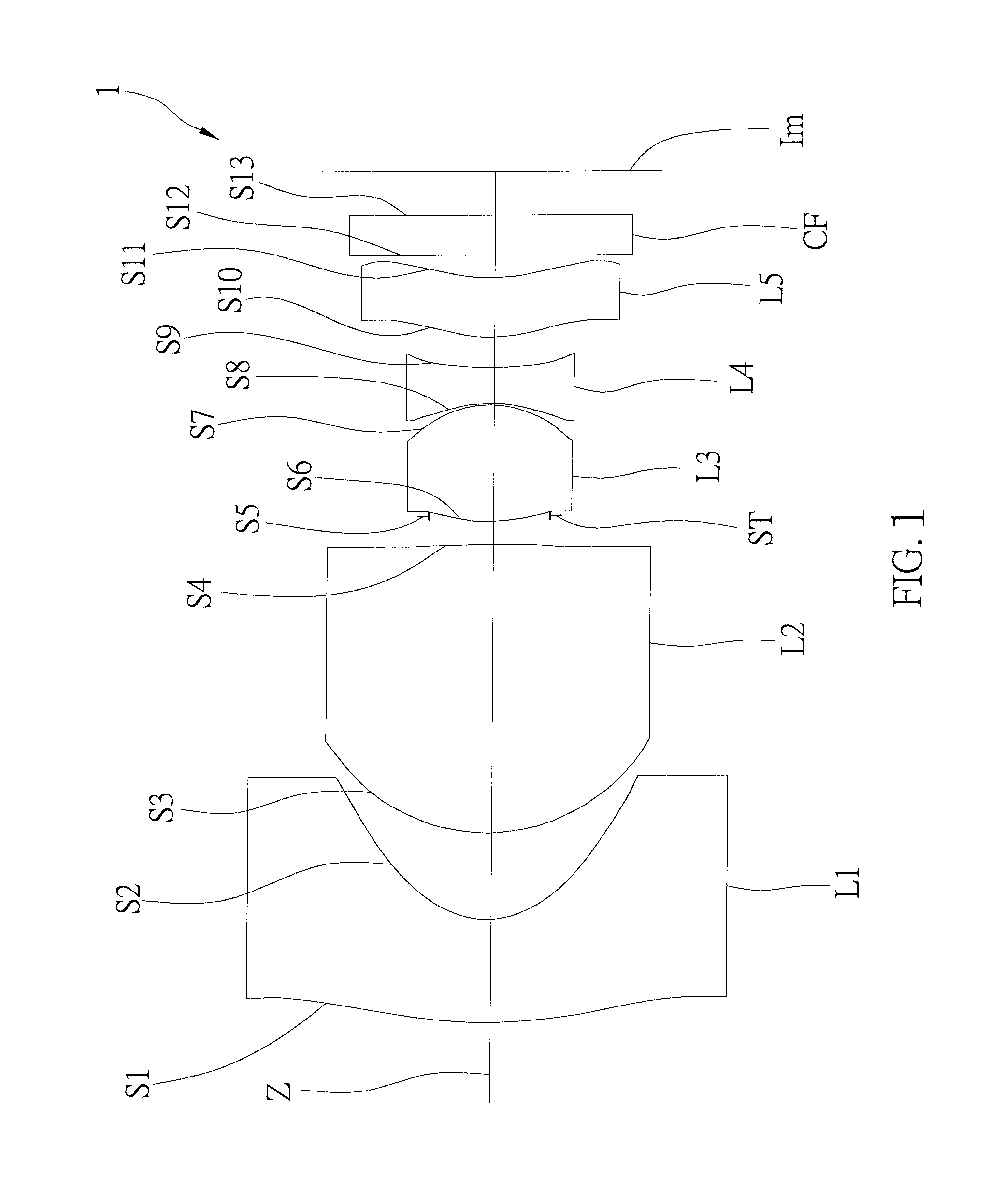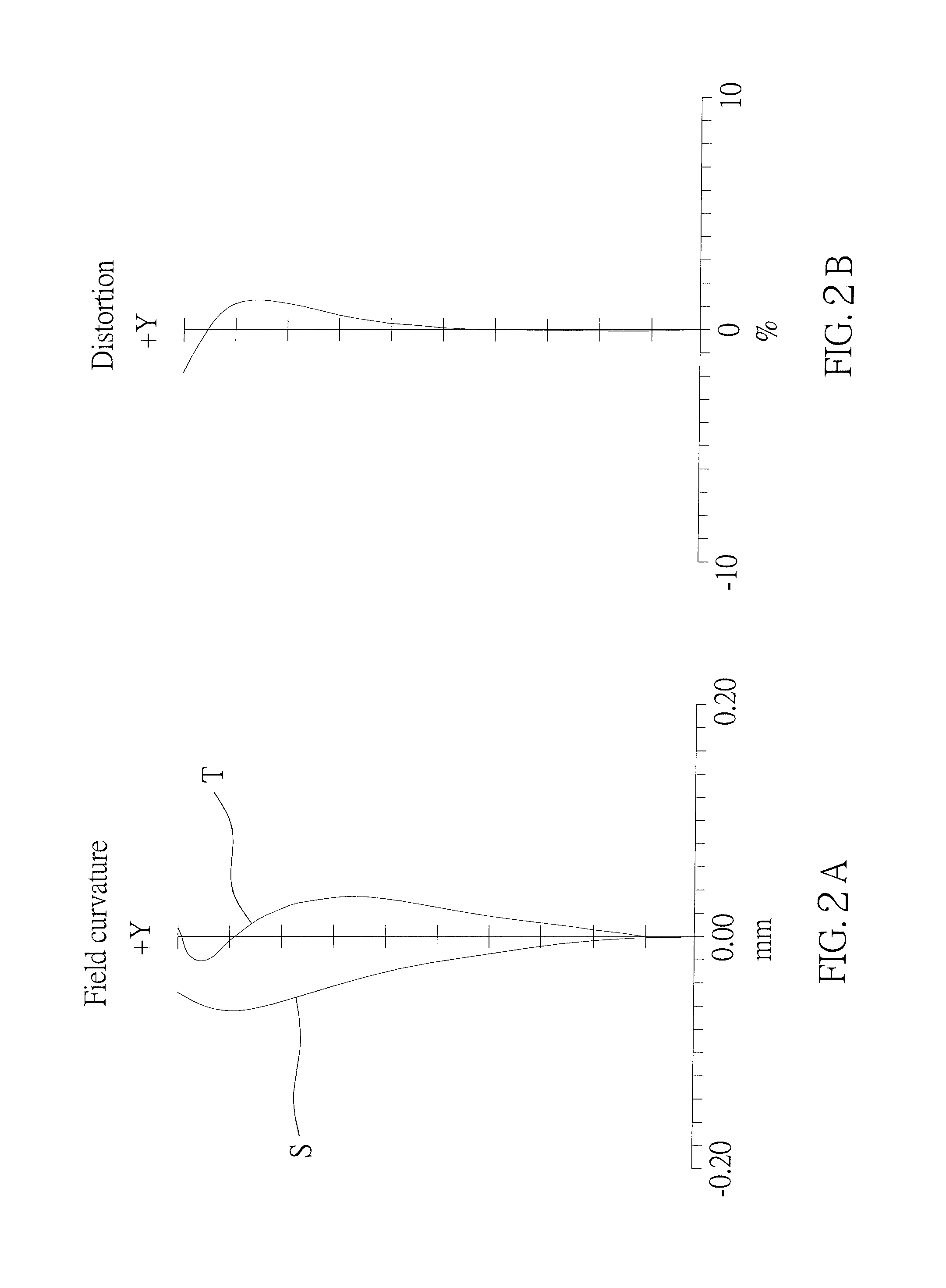Miniature image pickup lens
a pickup lens and miniature image technology, applied in the field of optical lenses, can solve the problems of chromatic aberration and distortion, and achieve the effect of less optical distortion and higher optical performan
- Summary
- Abstract
- Description
- Claims
- Application Information
AI Technical Summary
Benefits of technology
Problems solved by technology
Method used
Image
Examples
first preferred embodiment
[0047]FIG. 1 shows an arrangement of a miniature image pickup lens 1 of the first preferred embodiment of the present invention, which includes a first lens L1 a second lens L2, an aperture ST, a third lens L3, a fourth lens L4, a fifth lens L5, and an optical filter CF arranged in sequence along an optical axis Z from an object side to an image side Im.
[0048]The first lens L1 is a plastic negative meniscus lens with a convex surface S1 towards the object side and a concave surface S2 towards the image side Im, which makes the miniature image pickup lens 1 wide-angled. Both the convex surface S1 and the concave surface S2 of the first lens L1 are aspheric. The reason for applying such aspheric surfaces is to correct the distortion, which happens frequently for the miniature image pickup lens 1 designed as wide-angled.
[0049]The second lens L2 is a glass positive biconvex lens with two spherical convex surfaces S3, S4. The second lens L2 is applied to correct the distortion of the min...
second preferred embodiment
[0071]As shown in FIG. 3, a miniature image pickup lens 2 of the second preferred embodiment of the present invention includes a first lens L1, a second lens L2, an aperture ST, a third lens L3, a fourth lens L4, a fifth lens L5, and an optical filter CF arranged in sequence along an optical axis Z from an object side to an image side Im.
[0072]The first lens L1 is a plastic negative meniscus lens with a convex surface S1 towards the object side and a concave surface S2 towards the image side Im, and both the convex surface S1 and the concave surface S2 are aspheric, which makes the miniature image pickup lens 2 wide-angled. The reason for applying such aspheric surfaces is to correct the distortion, which happens easily for the miniature image pickup lens 2 designed as wide-angled.
[0073]The second lens L2 is a glass positive biconvex lens with two aspheric convex surfaces S3, S4. The aspheric convex surface S3 of the second lens L2 is helpful to correct the distortion as well, and a...
third preferred embodiment
[0089]As shown in FIG. 5, a miniature image pickup lens 3 of the third preferred embodiment of the present invention includes a first lens L1, a second lens L2, an aperture ST, a third lens L3, a fourth lens L4, a fifth lens L5, and an optical filter CF arranged in sequence along an optical axis Z from an object side to an image side Im.
[0090]The first lens L1 is a plastic negative meniscus lens with a convex surface S1 towards the object side and a concave surface S2 towards the image side Im, and both the convex surface S1 and the concave surface S2 are aspheric, which makes the miniature image pickup lens 3 wide-angled. The reason for applying such aspheric surfaces is to correct the distortion, which happens frequently for the miniature image pickup lens 3 designed as wide-angled.
[0091]The second lens L2 is a glass positive biconvex lens with two aspheric convex surfaces S3 and S4. The aspheric convex surface S3 of the second lens L2 is helpful to correct the distortion as well,...
PUM
 Login to View More
Login to View More Abstract
Description
Claims
Application Information
 Login to View More
Login to View More - R&D
- Intellectual Property
- Life Sciences
- Materials
- Tech Scout
- Unparalleled Data Quality
- Higher Quality Content
- 60% Fewer Hallucinations
Browse by: Latest US Patents, China's latest patents, Technical Efficacy Thesaurus, Application Domain, Technology Topic, Popular Technical Reports.
© 2025 PatSnap. All rights reserved.Legal|Privacy policy|Modern Slavery Act Transparency Statement|Sitemap|About US| Contact US: help@patsnap.com



